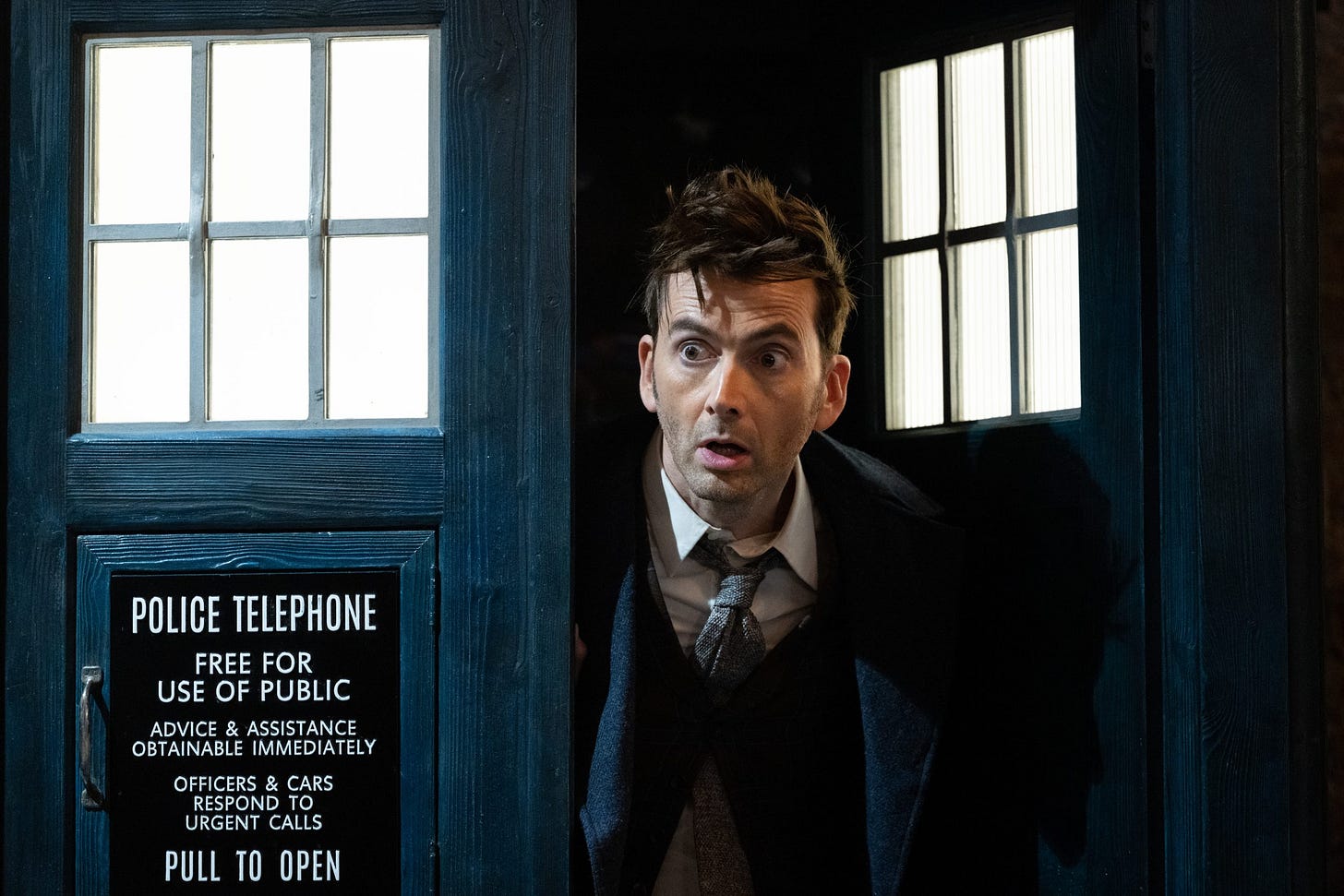David Tennant is Doctor Who Again, but is the Show Any Different?
“Doctor Who: The Star Beast,” the first of three 60th anniversary specials, now streaming on Disney+
Doctor Who, a British sci-fi television series aimed at families that often “reboots” itself via its alien Time Lord protagonist, recently celebrated its 60th anniversary. The first of three TV specials commemorating the occasion, titled “The Star Beast,” is a return to form of sorts for the series, featuring the return of head writer Russell T. Davies (henceforth known as RTD), lead actor David Tennant, and human companion Donna Noble, played by Catherine Tate.
For me, this was a most unique combination of factors. Doctor Who is a show I’ve loved for years but have not watched since 2018, as I was busy in grad school and internships and had to make some cuts on non-academic pursuits, much to my dad’s chagrin. This return, however, brought me back for many reasons: the RTD era from 2005-2010 is my favorite of the show, David Tennant is my favorite Doctor, and Donna Noble is my favorite companion. None of this, certainly, is unrelated to the fact that this specific combination was my first experience with Who when I was a highly impressionable early adolescent.
The episode is intentionally a mix of old storylines and character beats, with references to episodes that haven’t aired in over a decade, all while incorporating newer, modern elements. Since I left the show, Doctor Who has struggled in ratings and fan reception, as a then-new head writer oversaw an era of tumult and controversy, both for fair reasons (writing that seemed to miss the tone and spirit of the series) and unfair (diversity is great, people). Change and evolution are baked in the show’s DNA, but some seemed to not like this change.
“The Star Beast” is noticeably, almost desperately, designed to remind viewers of a time when they most liked Doctor Who. I can almost picture RTD saying to me “I promise the show is just like you left it! I’m back, David’s back, I even brought composer Murray Gold back!” as I watched. The question I found myself asking as I watched the (admittedly rollicking) episode was “has this show changed?” Because I know I have. I turn 30 next month but was 13 when my Dad found this odd British show on the Sci-Fi Channel (as it was spelled then). Even if it’s the same, my reaction to the show won’t be.
Ultimately, has Doctor Who changed? Its budget certainly has, featuring effects and spectacle to rival any blockbuster you’d find in theaters. As of the “The Star Beast,” it is unclear if Doctor Who has evolved (“regenerated,” in the parlance of the charmingly wonky sci-fi lore) in any deep or substantive way.
I trust (more like hope) RTD uses this as a launching-off point to write an innovative, new era of Who. I do not just want what that 13-year old kid saw on the Sci-Fi Channel to be what this show is now. It’s too special to do the same-old, same-old. It’s meant to grow, adapt, regenerate. Sure, David Tennant is the Doctor again, RTD’s writing his famously affective sci-fi character arcs, Murray Gold’s writing his killer musical score, and that wash of nostalgia is great in a moment, but it won’t be forever.
Regardless of all that, it undeniably felt wonderful to see this all again. The emotion and simultaneously clever and ridiculous sci-fi nonsense was just right, not to mention seeing David Tennant, truly one of my favorite actors, reinhabit what is his most famous role tickled me in a way I have not been in some time.
Maybe, nevertheless, it’s better to set change aside and simply bask in this: For the first time in some time, Doctor Who was fun again. As I did 17 years ago, I had fun with Doctor Who. That’s enough.




